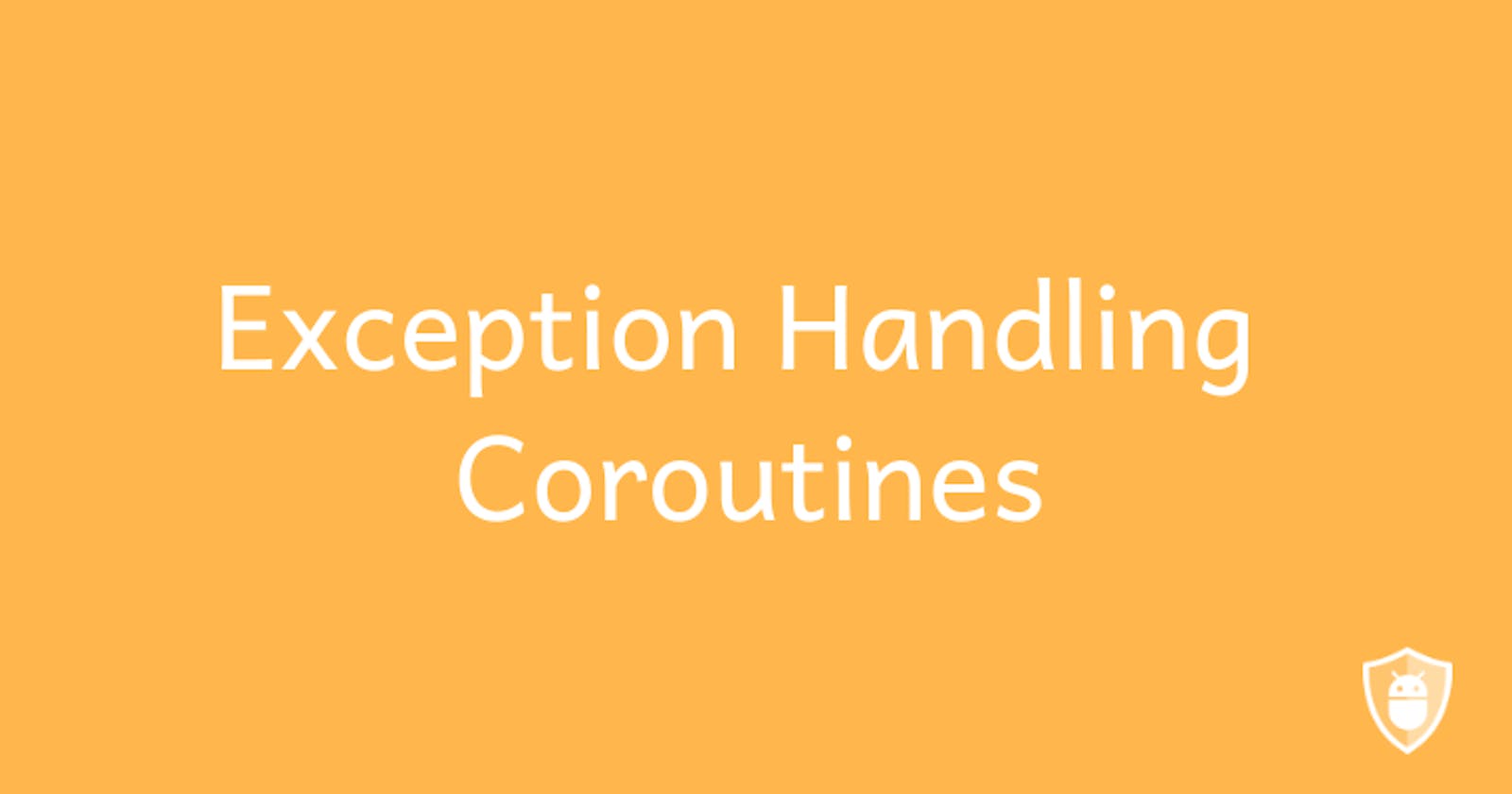𝙇𝙚𝙩'𝙨 𝙩𝙖𝙡𝙠 𝙖𝙗𝙤𝙪𝙩 𝙩𝙝𝙚 𝙚𝙫𝙞𝙡 𝙗𝙪𝙩 𝙡𝙞𝙛𝙚-𝙨𝙖𝙫𝙚𝙧 𝘾𝙤𝙧𝙤𝙪𝙩𝙞𝙣𝙚𝙎𝙘𝙤𝙥𝙚 𝙚𝙭𝙘𝙚𝙥𝙩𝙞𝙤𝙣 𝙝𝙖𝙣𝙙𝙡𝙞𝙣𝙜 :
𝙼𝚊𝚗𝚢 𝚘𝚏 𝚞𝚜 𝚎𝚟𝚎𝚗 𝙸 𝚠𝚊𝚜 𝚊 𝚝𝚛𝚢/𝚌𝚊𝚝𝚌𝚑 𝚐𝚞𝚢 𝚒𝚗 𝚝𝚑𝚎 𝚌𝚘𝚛𝚘𝚞𝚝𝚒𝚗𝚎 𝚜𝚌𝚘𝚙𝚎 𝚍𝚎𝚙𝚊𝚛𝚝𝚖𝚎𝚗𝚝. 𝙱𝚞𝚝 𝚞𝚗𝚏𝚘𝚛𝚝𝚞𝚗𝚊𝚝𝚎𝚕𝚢, 𝚢𝚘𝚞 𝚠𝚘𝚗'𝚝 𝚊𝚋𝚕𝚎 𝚝𝚘 𝚌𝚊𝚝𝚌𝚑 𝚝𝚑𝚎 𝚎𝚡𝚌𝚎𝚙𝚝𝚒𝚘𝚗 𝚠𝚒𝚝𝚑 𝚒𝚝 𝚎𝚜𝚙𝚎𝚌𝚒𝚊𝚕𝚕𝚢 𝚝𝚑𝚎 𝚜𝚌𝚘𝚙𝚎 𝚒𝚗 𝚜𝚌𝚘𝚙𝚎 𝚜𝚒𝚝𝚞𝚊𝚝𝚒𝚘𝚗 𝚊𝚜 𝚢𝚘𝚞 𝚌𝚊𝚗 𝚕𝚊𝚞𝚗𝚌𝚑 𝚞𝚗𝚕𝚒𝚖𝚒𝚝𝚎𝚍 𝚜𝚌𝚘𝚙𝚎 𝚒𝚗 𝚊 𝚌𝚘𝚛𝚘𝚞𝚝𝚒𝚗𝚎. 𝚂𝚘 𝚍𝚘 𝚝𝚑𝚎 𝚏𝚘𝚕𝚕𝚘𝚠𝚒𝚗𝚐 𝚖𝚒𝚐𝚑𝚝 𝚜𝚊𝚟𝚎 𝚢𝚘𝚞𝚛 𝚍𝚊𝚢...
✅ Use async{} coroutine block for handling the exception because it will specifically return the error to you after awaiting for the code block to execute. But it is not the best idea and you should not use it but it still better than try/catch
✅ When you use multiple scopes by launch{} block in coroutine scope please make sure you are using supervisor scope else whenever a scope gets an exception the below scopes will not be executed else it will cancel all the scopes under it. By using supervisor scope only faulty scope will be canceled and below scopes will be executed.
✅ Best practice use CoroutineScopeExceptionHandler in the scope which is the best way of doing this. It is better than async or try/catch and it is the only way of doing it properly.
✅ If you want to work with a list of tasks please make sure doing in sync way, one by one else you have to handle everything manually and the sequential task might fail due to this.
✅ Do not use GlobalScope unless you really needs it.
✅ If you want to get a list of exceptions from a nested coroutine scope please make sure you are using the supervisor scope else you will get only the top exception and do not use try/catch use the Coroutine Scope exception handle for the launched scopes.
#androiddevelopment #coroutine #kotlin #android #programming #exception
